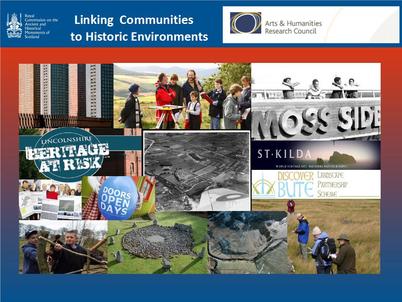|
I am a social geographer engaged in interdisciplinary research and based at the University of Aberdeen. Currently I am based in the dot.rural digital economy research hub, which reflects my interest in rural and peripheral areas, and in July I move to the Gaelic department at the University to pursue my interest in the social geographies of the Celtic languages. I gained a PhD (geography) from the university of Aberdeen in 2009. My doctoral research examined the social identities of Gaelic speakers employed in the Gaelic language industries in scotland. In the course of exploring issues of community, identity and difference with Gaelic speakers in Scotland, I have observed a temporal dimension at work. The increasing hybridity of the 'Gaelic speech community', itself connected to processes of de- and re-territorialisation, is disrupting previously taken-for-granted notions of Gaelic speakers sharing a common past or shared future. This workshop topic challenges me to better conceptualise and attend to the role of temporality in negotiations of belonging within the Gaelic speech community. It raises questions over how memory, inheritance, inter-generationality and tradition are worked to legitimise some Gaelic-speaking identities, but disavow others. As well as provoking new ways of understanding identity formation/ascription, this also raises questions over how differential histories of places are reproduced to support particular claims for Gaelic language promotion and government support. I think the workshop represents an opportunity for me to start grappling with non-linear notions of time and community in this minority language context. Marsaili's Pecha Kucha Talk I am an archaeologist employed by the Royal Commission on the Ancient and Historical Monuments of Scotland. We are a non- departmental government body in Scotland and we help to survey, record, interpret and present the historic environment of Scotland and an AHRC IRO. I studied Geography and Archaeology at Manchester University and then Archaeology at the University of Edinburgh. I am currently undertaking a research review as part of the AHRC Connected Communities programme, entitled ‘Linking Communities to Historic Environments', which looks at how organisations like ourselves and others engages with communities through the historic environment. My approach to the topic of the workshop is simple; if it wasn’t for time I would not be here. Time is what my job is about, it forms the core of my research and is measured in archaeological time, through people’s actions and remains. Alex's Lightning Talk I stopped being a lecturer in social anthropology at the University of Glasgow in 2009 to continue my work with my local community resilience initiative, PEDAL, and the broader movement for resilience in Scotland through Holyrood 350, and to resume working with Central African communities for the Forest Peoples Programme. I am a research fellow in social anthropology at the University of Edinburgh, and a member of SASI (the St Andrews Sustainability Initiative). 'The title of my paper is Can Transition be in time? It looks at the kinds of time people in a transition initiative like PEDAL (Portobello Transition Town) have to negotiate between: - urgent 'war' time, and the sense of Imminent ecological collapse; - 'long' time, energy decent plans, community and resilience building; - 'clock' time, and the targets and deadlines set by government funding; - 'fantasy' time, especially in local newspaper coverage; - 'task' time and the immediacy of actions and relations in the present. Does Transition happen in time, or does it happen in place? Is Transition about recognising that mobilising place can vastly extend and deepen the quantity and quality of time available for making the transition?
|
Tags
All
|
- Home
- About
- Resources
-
Events
- Timely methods for novel times
- The Material Life of Time
- The Material Life of Time Pilot
- The Social Life of Time >
- Temporal Design >
- Immortality and Infinitude >
- Power, Time and Agency >
- Methods Festival >
- Time in the Archives
- Hope and Community Futures
- Temporal Conflicts >
- Community Connectivities >
- Contact

